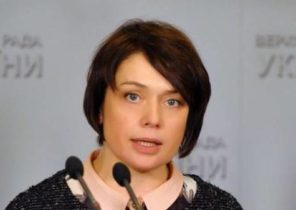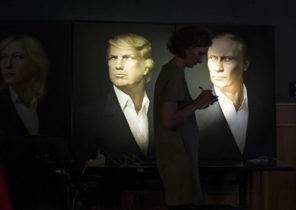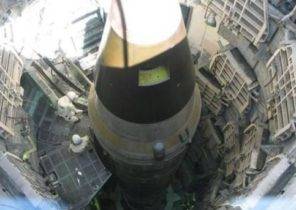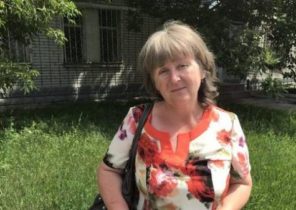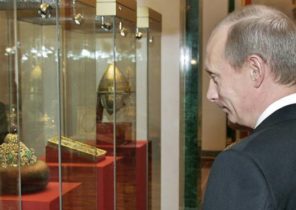The family estate of Skoropadsky Trostyanets doors and gates never closed — but no theft of property of the peasants were recorded…
In numerous Ukrainian aristocratic families throughout the XIX — early XX century, and as in the former Hetmanate, and in right-Bank Ukraine and its Western regions, the visible common factors of forming and strengthening their “Ukrainians.” To a large extent they are manifested in the specific features of life associated with direct participation in economic activities in crown lands, the Patriarchal nature of the relationship with the peasantry, close daily communication with him.
Hetman Skoropadsky, in particular, in his memoirs, notes that the Patriarchal structures and human relations largely remained intact. “The main feature of these relations,” he writes, ” was a surprise worthy of simplicity and a certain proximity to each other. In this respect, I often later recalled the manner of my grandfather to talk with ordinary people and answers the last.”
About this location “exploiters” and “exploited” speaks eloquently of the fact that the whole huge Trostyaneckiy estate Skoropadskyi was only one watchman — Ivan Korzun, an old soldier, a veteran of the Crimean war. Doors in houses are not closed at night, but that was no reason for theft or other manifestations of “class hate” to the gentry.
Such circumstances of life in Trostyanets ‘ was not an isolated phenomenon. Many members of the Ukrainian aristocracy, patraw interest in the service in a state-owned Russian institutions, having served there for a period of time, rather fled to their estates, immersed in a familiar traditional way of life, found solace in the native language, household work, farm environment.
Aversion to Russian state-owned the home showed the representatives of other ancient Cossack family — lizogubs, brothers Ilya and Andrei, the contemporaries of Ivan Mikhailovich Skoropadsky — the grandfather of the future Hetman Pavlo Skoropadsky. Both brothers were educated, intelligent people: Ilya is a musician, Andrew is an artist. As evidenced by Alexander Kansky, Andrew Lizogub was a man of “simple, sincere, humane, and independent.” He didn’t respect, “this service in the offices, just ignored it”. Him “it was boring to live with the dark crowd”, he was drawn to the village to farm. Both Lizogub was in love with the nature of the native land, the Ukrainian language. In lizogubovka house in Sednev, it was common to hear Ukrainian songs. In the summer it was visited by many guests — artists, actors, “shocked” ukrainophilism. Visited lizogubs and Taras Shevchenko.
Ukrainian identity was an integral feature of many of the gentry estates in Ukraine of the XIX century and greatly influenced the content of its national life.
Abolishing the autonomy of Ukraine, the Russian “reformers” sought to assimilate and break the Ukrainian national elites and the clergy with the bulk of the people. A significant part of the descendants of the Cossack Hetman layer, the Ukrainian gentry became Russian nobility, “slaves with cockades on his forehead”, in the words of Taras Shevchenko. However, this transformation was not absolute and irreversible for many Ukrainian aristocratic families.
The “Ukrainians” were common to many descendants of the Cossack Hetman of the layer for which entry into the Russian Imperial system was often accompanied by a dramatic collisions of the socio-political character and acute moral and psychological experiences.
A vivid example is the identity of Gogol, who did not manage to overcome the duality of the soul, where dramatic coexisted “Russian” and “Ukrainian”. In academic and journalistic literature for a long time dominated the view that the Russian component of his spirituality became a major. However, the reality was different. Stay in St. Petersburg and Moscow in the end formed the soul of Gogol feeling cold, lack of fresh air and solitude. The writer is more cultivated in his soul a kind of Ukrainian refuge, where he lives as a Ukrainian, feels free, relaxed, devoid of destructive the Russian official of city life.
As did Osip Mandelstam, Gogol had always hidden in the cavern of his soul the light of love to Ukraine, where no one could see and where he, as the Ukrainian felt free and confident. Organic attachment to the Ukrainians were often combined in Gogol with sharp explosions sharply negative assessments of Russian life, its harmful effects on the spiritual world of the Ukrainian intelligentsia. July 2, 1833, he wrote to Maksymovych: “Throw in the fact casapiu Yes, come to the Hetman. I think the same is done for the next year to give up here. Fools we are right to judge as well. For whom and to what sacrifice?” A little later he writes: “I also thought there, there in Kiev, the ancient beautiful Kiev! He is our, not their, isn’t it? There or around it deals the Affairs of our antiquity. There you can updated all forces”.
A year later, Goldeneye returns again to the Maksimovic, “well, are you coming or not? Love in this old fat woman — Moscow, which in addition to the soup Yes, swearing will not hear anything… the Song we need to publish in Kiev. Uniting together, we can get publishing, what ever, no one was.”
The writer clearly showed their desire to escape from the Russian intellectual environment, and to create its own Ukrainian culture. This “duality”, and in fact, the Ukrainian integrity, was characterized as srednevozrastnoe Ukrainian landed aristocracy (Gogol), and its higher and lower strata. It is noteworthy that a relative of the mother of Gogol was the Minister of justice of the Empire (in the reign of Alexander I) Dmitry Troschinsky. Poor groom, who worked in the office of count Bezborodko, he made a fantastic career. However, despite a brilliant takeoff, the attraction to Ukraine in the end led to his return home, and the rest of his life he lived in Poltava, in the village of Kibintsy, which became an important center of Ukrainian national-political and cultural life.
Here was established a home theater, which was led by the father of Gogol, in the Palace of the aristocrat heard the Ukrainian language. Ogloblin claims that Troschinsky was the leader of a secret circle of Ukrainian autonomists in the early nineteenth century, who dreamed about the restoration of the Hetmanate in Ukraine. Kybyntsi — “Ukrainian Athens”, as contemporaries called them, became the spiritual refuge of Ukrainian nobles like many villages in the Ukraine, where aristocratic residents have found a harmonious fusion with the local Ukrainian reality, a holiday from another state-owned Russian life in St. Petersburg.
This alienation from the Ukrainian state-owned atmosphere of the Russian capital is clearly conveyed in the poem “the Dream” Taras Shevchenko, who saw it as “hi ognisko hachi”, but only “the Church I palati”. Of course, the poet is not talking about the presence of peasant huts in St. Petersburg, and the absence in his everyday existence the manifestation of the high standards of morality, humanity, spirituality that accompanied peasant life in Ukraine throughout its history. This high purpose, in the opinion of the poet, was for Ukrainians the peasant house, which was one of the Central symbols of his life-affirming poetry.
Despite the low profile of the external manifestations of radical opposition of the Ukrainian society in the Russian Empire and the political caution of the Ukrainian movement during the XIX century in the subsoil has accumulated a huge protest potential, which exploded in 1917 and led to the revival of Ukrainian statehood. Participants in this process were without exception, all social strata of Ukraine, including the Ukrainian nobility, which gave to the Ukrainian national movement, massive.
In the end, for many participants, the process of Ukrainian public confession of official Russian patriotism, a sense of “indivisible Russia” was purely visible, the top take national patriotism, which are more and more becoming the Foundation of the Ukrainian revival and made his way not only for the cultural “isolation”, but also for the intensification of Ukrainian public movement.
